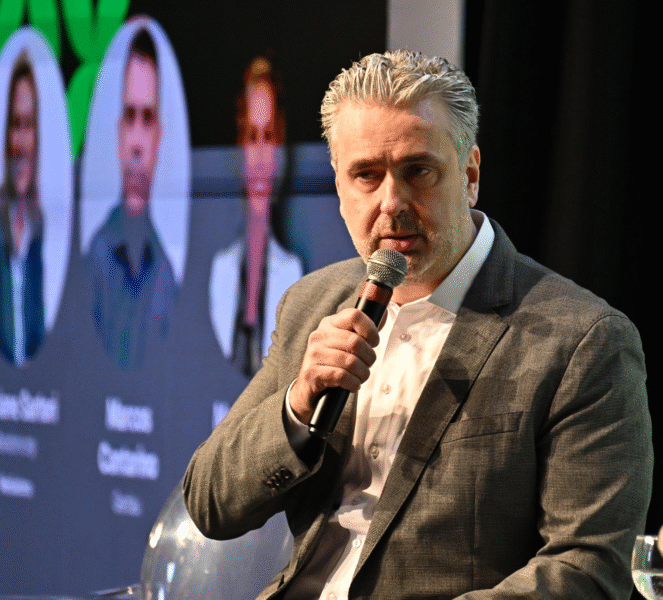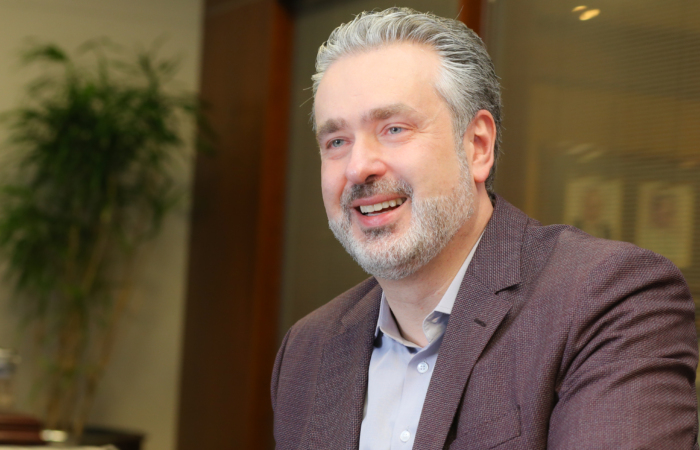
A company with a consistent journey of attention to social, environmental and governance issues – which began even before public commitments to the ESG agenda were established, in 2021 – Randoncorp reaffirms, every year, its permanent commitment to sustainability. For the fifth consecutive time, the automotive company held the ESG ambition, an event that brings together shareholders, investors, employees and authorities to present the Sustainability Report and share the results of their actions. Initiatives like this one, presented in June at the Caldeira Institute in Porto Alegre, represent more than cultivating transparency with stakeholders and communicating progress on the sustainability path: they are another step in strengthening their strategic positioning and reinforcing their leading role in the transformation of the mobility industry.

In addition to declaring that building a sustainable future for mobility requires collaborative action in accordance with real market demands, the company practices this belief. The largest manufacturer of road implements in Latin America and one of the largest in the world, Randoncorp invited partners in important projects and products to evaluate the results of the company's sustainability trajectory and reflect on challenges and opportunities in actions motivated by this objective. Gerdau, Volkswagen Trucks and Buses and Be8 were highlighted at the event. Projects such as the recycling and reuse of metallic materials and the Addiante joint venture, both in partnership with Gerdau, the replacement of fossil diesel in tests at the Randon Technology Center (CTR), in conjunction with Be8, and the e-Sys technology used in the VW Meteor hybrid concept truck, from Volkswagen Caminhões e Ônibus, anticipate real gains in sustainability and strengthen the competitiveness of the sector.
During the event, Daniel Randon, president of Randoncorp, highlighted the strategic importance of the ESG agenda for the company's reputation and growth, as well as for a more sustainable future. "In this challenging time, whether due to political, macroeconomic, environmental and Rio Grande do Sul issues (which suffered a flood in 2024), it is our role to discuss opportunities and work towards sustainable growth with a global vision”, he reinforced. The automotive sector is responsible for a portion of greenhouse gas emissions, the main cause of global warming and climate change, and is undergoing a movement of change demanded by society and the market.
Read: Daniel Randon: trust in innovation, ESG practices and people to maintain reputation and grow
Target and progress in decarbonization
The Brazilian multinational, headquartered in Rio Grande do Sul, with operations in more than 125 countries and more than 36 industrial units, also made progress in decarbonizing its operations. One of the indicators that demonstrate this movement is the growth in the use of electricity from renewable sources. Currently, 65% of the energy used comes from self-production or the acquisition of certified energy. There was also a reduction of 20.7% in greenhouse gas (GHG) emissions compared to 2023. “These results are not just numbers, but evidence of our genuine commitment to the future. Sustainability is not just a path, it is the only path”, stated Daniel. Randoncorp is committed to reducing greenhouse gas emissions by 40% by 2030.

Also to drive the sustainability agenda, last year the company raised its first sustainable funding, totaling R$500 million, from the World Bank's International Finance Corporation (IFC). The funds made it possible to install a green boiler at the Frasle Mobility unit in Caxias do Sul. The equipment, powered by biomass instead of natural gas, avoids the equivalent of 10 thousand tons of CO₂ per year and contributes to a 20% reduction in Randoncorp's total greenhouse gas emissions, that is, half of the company's total target.
Internationalization, diversification and investments in innovation
Despite the challenging scenario, the company maintains a consistent business growth strategy driven by diversification, internationalization and innovation. Earlier this year, Randoncorp, through its subsidiary Frasle Mobility, acquired Mexican company Dacomsa for R$2.2 billion. The transaction was the largest in the company's history. Last year, it also acquired brake distributor European Braking Systems (EBS), from the United Kingdom, through Master Freios. With the acquisitions, 30% of revenue will now be represented by international operations, increasing the company's resilience to adverse scenarios and reducing dependence on the Brazilian market, according to the company.
Furthermore, the company registered 73 patents in Brazil last year, which represents ongoing investment in innovation in the mobility sector. "We achieved a record number of patents registered at INPI (National Institute of Industrial Property) and we present very relevant news for the market”, Daniel reinforced. Almost 45% of the company's net revenue comes from products launched in the last five years.
More than
R$ 200 million
were destined
for research, development and
innovation (RD&I)
in 2024


